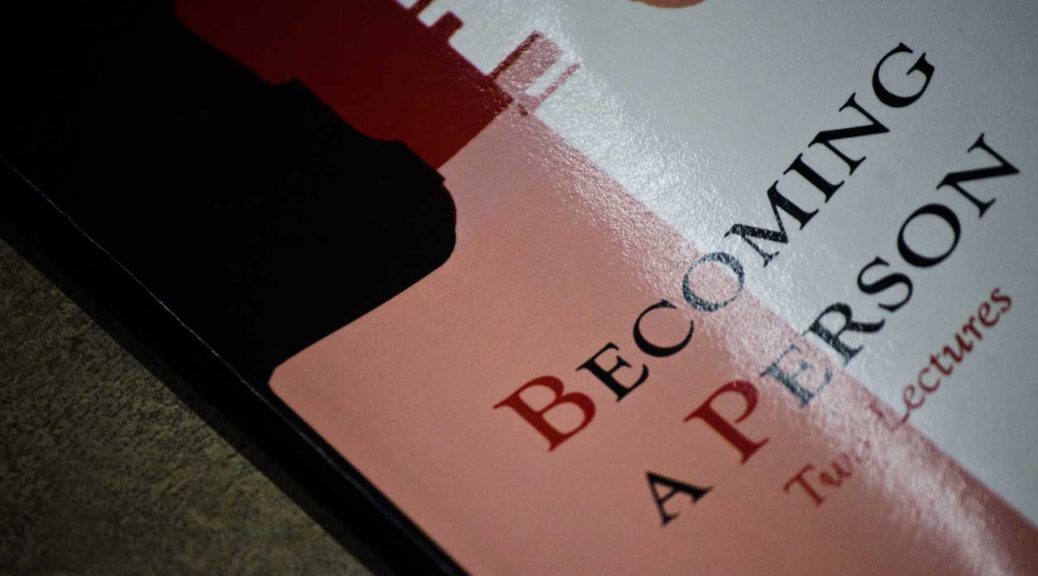Rogers, Carl R. Becoming a Person: Two Lectures Delivered on the Nellie Heldt Lecture Fund. Martino Publishing, 2015. (First published 1954)
-Some Hypotheses Regarding the Facilitation of Personal Growth
-What It Means to Become a Person
“It has gradually been driven home to me that I cannot be of help to this troubled person by means of any intellectual or training procedure. No approach which relies upon knowledge, upon training, upon the acceptance of something that is taught, is of any use.” p. 2
hypothesis: “If I can provide a certain type of relationship, the other person will discover within himself the capacity to use that relationship for growth, and change and personal development will occur.” p. 2
to read Søren Kierkegaard
Kierkegaard ‘points out that the most common despair is to be in despair at not choosing, or willing, to be one’s own self; but that the deepest form of despair is to choose “to be another than himself.” One the other hand, “to will to be that self which one truly is, is indeed the opposite of despair,” and his choice is the deepest responsibility of man.’ p. 11
“To remove a mask which you had thought was part of your real self can be deeply disturbing experience, yet when there is freedom to think and feel and be, the individual moves toward such a goal.” p. 11
“the real self is something which is comfortably discovered in one’s experience, not something imposed upon it.” p. 15
“to an increase degree he becomes himself-not a facade of conformity to others, nor a cynical denial of all feeling, nor a front of intellectual rationality, but a living, breathing, feeling, fluctuating process-in short, he becomes a person.” p. 15
“this increasing ability to be open to experience makes him far more realistic in dealing with new people, new situations, new problems. It means that his beliefs are not rigid, that he can tolerate ambiguity.” p. 16
“The individual increasingly comes to feel that this locus of evaluation lies within himself. Less and less does he look to others for approval or disapproval; for standards to live by; for decisions and choices. He recognizes that it rests within himself to choose; that the only question which matters is: “Am I living in a way which is deeply satisfying to me, and which truly expresses me?” This I think is perhaps the most important question for the creative individual.” p. 19-20
“the individual seems to become more content to be a process than a product.” p. 21
“It means that a person is a fluid process, not a fixed and static entity; a flowing river of change, not a block of solid material; a continually changing constellation of potentialities, not a fixed quantity of traits.” p. 22
to read: On Becoming a Person (1961)
